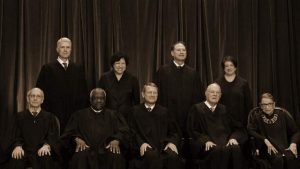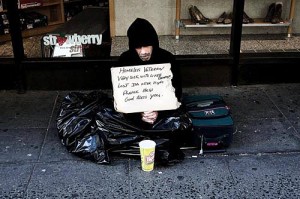Podcast: Play in new window | Download
Justice Thomas Fails To Disclose Luxury Gifts From Billionaire Harlan Crow
It has recently come to light that rightwing billionaire and GOP megadonor Harlan Crow paid for decades of luxury travel, gifts, and family property for Clarence Thomas, a member of the U.S. Supreme Court. Crow sits on the board of the neoconservative American Enterprise Institute, a conservative think tank that frequently files amicus briefs in pending Supreme Court cases.
In 2019, Crow flew Thomas to Indonesia in his private jet and funded a nine-day island-hopping cruise aboard Crow’s superyacht, a trip valued at more than $500,000, nearly double Thomas’s annual salary.
But in spite of the Ethics in Government Act’s requirement that federal judges disclose gifts over $415, Thomas failed to file such a disclosure.
In 2004, Thomas refused to recuse himself from a case in which Crow’s real estate company was being sued, despite a federal law requiring federal judges to recuse themselves when their impartiality might reasonably be questioned.
And in 2021 and 2022, Thomas failed to recuse himself from cases involving the January 6 insurrection and Donald Trump’s efforts to overturn the results of the 2020 presidential election, even though Thomas’ wife Ginni was a prominent organizer of the “Stop the Steal” campaign.
While a Code of Conduct binds lower federal court judges, members of the Supreme Court are bound by no such code of conduct.
Guest – Professor Ellen Yaroshefsky is the Howard Lichtenstein Professor of Legal Ethics and Director of the Monroe Freedman Institute for the Study of Legal Ethics at the Maurice A. Deane School of Law at Hofstra University. Ellen is the longstanding co-chair of the Ethics Advisory Committee of the National Association of Criminal Defense Lawyers and the former co-chair of the American Bar Association’s Ethics, Gideon and Professionalism Committee of the Criminal Justice Section.
—-
The Right to Housing In California
The state of California has been described as ground zero in a national housing crisis. Plagued by escalating housing costs, lack of affordable housing stock, and stagnating wages, more than half of the country’s unsheltered residents and a quarter of all unhoused people live in California, even though state residents comprise just 12% of the nation’s population. Humanitarian concerns there disproportionately impact Black and Brown residents. To address this crisis, California legislators have introduced constitutional amendment proposals that would enumerate the right to housing in the state constitution.
In a recent report, “Recognizing the Right to Housing,” the ACLU and other organizations assert that guaranteeing every person the right to housing provides an important government obligation and legal tool to ensure that Californians have access to affordable and adequate housing. Such a rights-based approach will bolster California’s existing Housing First policy, based on decades of empirical evidence that houselessness is best remedied by access to permanent and stable housing, with minimal requirements for entry. A 2020 poll shows that 60% of Californians support the constitutional amendment.
Guest – Attorney Kath Rogers from the ACLU of Southern California. Before joining the ACLU, Kath was Program Manager and Adjunct Professor at the University of Southern California, where she co-authored the housing report. She also served as Executive Director of the National Lawyers Guild Los Angeles. Kath’s legal work has included defending unhoused clients and activists, and co-counseling on a federal constitutional class action lawsuit, Arundel v. City of San Diego, challenging the criminalization of houselessness. It resulted in a settlement to change discriminatory policing practices.
Hosted by attorneys Heidi Boghosian and Marjorie Cohn
———————————————–




